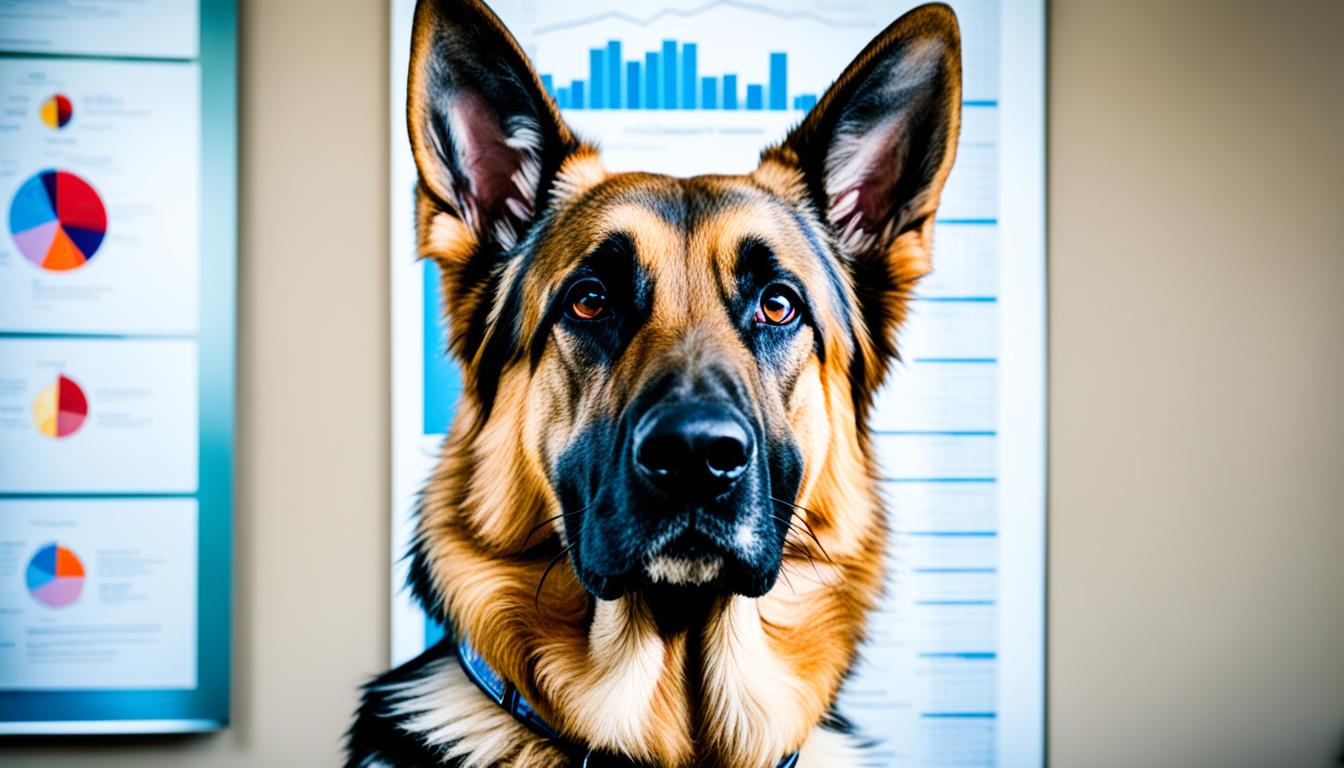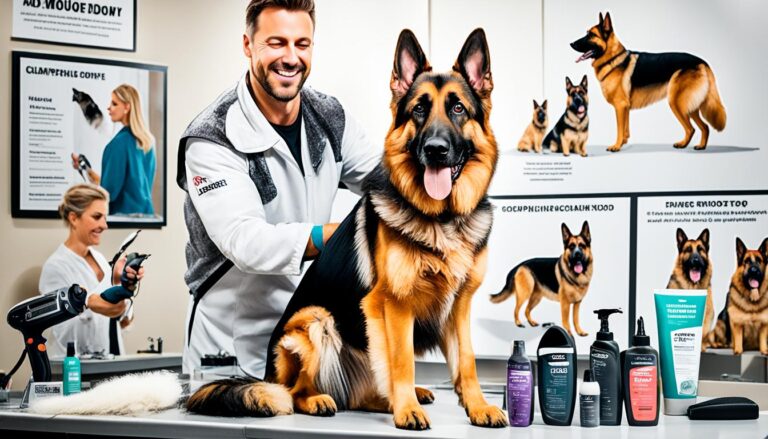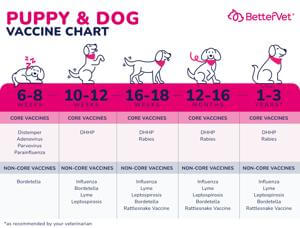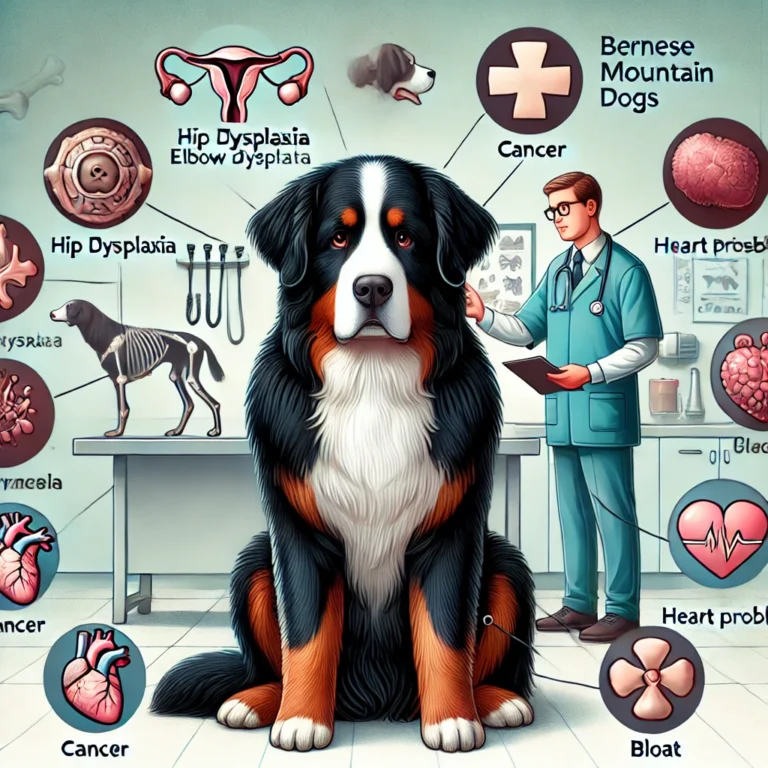Common German Shepherd Health Issues: What to Know
German Shepherds are beloved for their intelligence and loyalty, but they’re not immune to health problems. These majestic dogs face several breed-specific conditions that stem from their genetic predisposition. We’ll explore the common German Shepherd health problems to help owners better care for their furry companions.
With an average lifespan of 7-10 years, German Shepherds require attentive care throughout their lives. About 20% of these dogs suffer from hip dysplasia, a condition that can significantly impact their mobility and quality of life. Regular vet check-ups are crucial for early detection and management of such issues.
German Shepherds are also prone to certain cancers, including hemangiosarcoma and bone cancer. Additionally, they may face digestive issues like exocrine pancreatic insufficiency (EPI) and the life-threatening gastric dilation-volvulus (GDV). Eye problems, such as pannus, are more prevalent in German Shepherds, especially those living at high altitudes or exposed to increased UV light.
Key Takeaways
- German Shepherds have an average lifespan of 7-10 years
- Hip dysplasia affects about 20% of the breed
- They’re prone to certain cancers and digestive issues
- Eye problems like pannus are common in German Shepherds
- Regular vet check-ups are essential for early detection of health issues
Understanding German Shepherd Health: An Overview
German Shepherds are beloved for their loyalty and intelligence, but they face unique health challenges. Our overview sheds light on breed-specific health concerns and the importance of proactive care.
Breed-specific health concerns
German Shepherds are prone to several health issues. A 2017 study in Canine Genetics and Epidemiology found that 63% of U.K. German Shepherds had at least one disorder. Common problems include hip and elbow dysplasia, degenerative myelopathy, and gastric dilatation-volvulus (GDV).

Importance of regular veterinary check-ups
Regular veterinary care is crucial for early detection and management of German Shepherd health issues. We recommend bi-annual check-ups to monitor your dog’s overall health and catch potential problems early. These visits allow vets to perform necessary screenings and provide preventive care tailored to your German Shepherd’s needs.
Genetic predisposition to certain conditions
Genetic screening plays a vital role in identifying potential health risks in German Shepherds. Data from the Orthopedic Foundation of Animals reveals that nearly 21% of German Shepherds had hip dysplasia, while 19% had elbow dysplasia. Responsible breeders use genetic testing to reduce the likelihood of passing on hereditary conditions.
- Hip dysplasia affects up to 20% of German Shepherds
- Degenerative myelopathy primarily occurs in older dogs
- GDV has a mortality rate of 25-30% in German Shepherds
By understanding these health concerns and prioritizing regular veterinary care, we can help ensure our German Shepherds lead healthy, happy lives.
Hip and Elbow Dysplasia in German Shepherds
German Shepherds are prone to joint problems, with hip dysplasia and elbow dysplasia being common concerns. These conditions can significantly impact a dog’s quality of life if left untreated.
Symptoms and Early Detection
Hip dysplasia affects about 20.6% of German Shepherds. Signs include difficulty walking, a swaying gait, and pain. Elbow dysplasia, affecting 18.8% of the breed, causes limping, inward leg rotation, and joint stiffness. Early detection through regular vet check-ups is crucial for managing these conditions effectively.
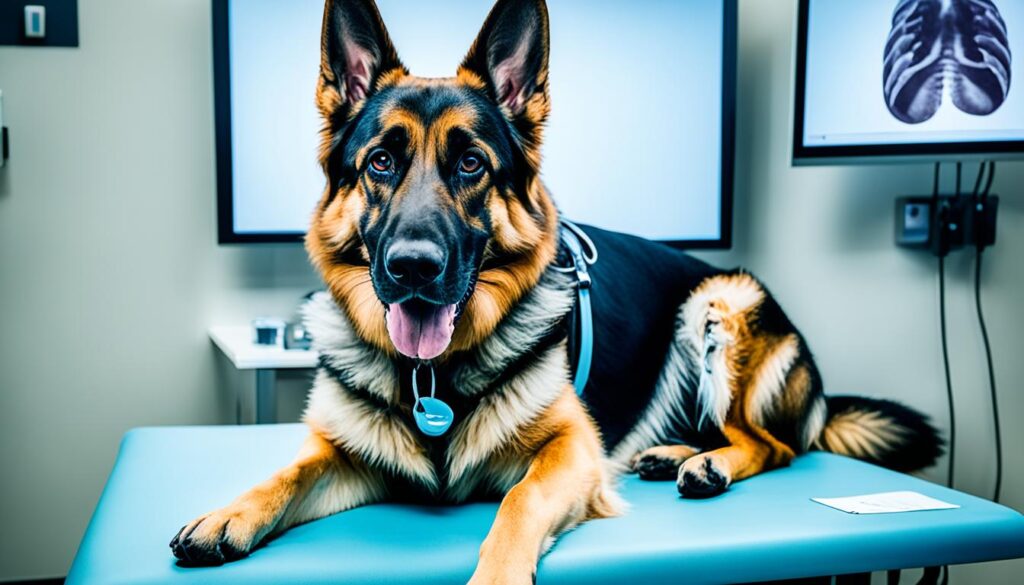
Treatment Options and Management
Treatment for hip and elbow dysplasia varies depending on severity. Options include:
- Weight management to reduce stress on joints
- Non-steroidal anti-inflammatory drugs (NSAIDs) for pain relief
- Supplements to support joint health
- Physical therapy to improve mobility
- Surgery in severe cases
Surgical costs for hip dysplasia can range from $1,000 to $7,000 per hip, with total hip replacement being the most expensive option.
Impact on Quality of Life
Joint problems can significantly affect a German Shepherd’s quality of life. Without proper management, these conditions may lead to osteoarthritis. A study of military German Shepherds found that around 20% of dog deaths were due to limb osteoarthritis, highlighting the importance of early intervention and ongoing care for dogs with hip and elbow dysplasia.
“Early detection and proper management of hip and elbow dysplasia can greatly improve a German Shepherd’s quality of life and longevity.”
Degenerative Myelopathy: A Progressive Neurological Disorder
Degenerative myelopathy is a severe neurological disease that affects German Shepherds. This spinal cord disorder typically manifests in older dogs, usually around eight years of age. As a progressive condition, it starts in one hind limb and gradually spreads to both, significantly impacting the dog’s mobility and quality of life.
The prevalence of this condition is concerning. Studies show that approximately 2% of German Shepherds in U.S. veterinary teaching hospitals are affected by degenerative myelopathy. In the UK, with an estimated German Shepherd population of 400,000, this translates to potentially 8,000 dogs suffering from this debilitating disorder.
Genetic factors play a crucial role in the development of degenerative myelopathy. Dogs with two copies of the SOD1A gene variant are at higher risk. Genetic testing can identify carriers and at-risk animals, allowing breeders to make informed decisions.
| Age of Onset | Progression | Prognosis |
|---|---|---|
| Typically 8-9 years | 6-12 months from onset | Poor, often leads to euthanasia |
While there’s no cure for this spinal cord disorder, management focuses on maintaining mobility. Physical therapy, swimming, and walking can help slow progression. Some veterinarians recommend supplements like epsilon-aminocaproic acid and vitamins B, C, and E. Emerging treatments like therapeutic laser therapy show promise, but require further research.
Early detection and proper management are crucial in dealing with degenerative myelopathy. Regular check-ups and genetic screening can help identify at-risk dogs, allowing for proactive care and improved quality of life.
Gastric Dilatation-Volvulus (GDV): A Life-Threatening Emergency
Gastric Dilatation-Volvulus (GDV), commonly known as bloat, is a severe condition that can affect German Shepherds. This life-threatening emergency involves the stomach expanding with gas and twisting on itself, leading to a dangerous situation that requires immediate attention.
Recognizing the Signs of Bloat
Early detection is crucial in managing GDV. Signs of bloat include:
- Anxious behavior
- Excessive drooling
- Swollen or distended abdomen
- Attempts to vomit without producing anything
- Rapid breathing
- Weakness or collapse
If you notice these symptoms, seek emergency veterinary care immediately.
Preventive Measures and Surgical Options
To reduce the risk of GDV:
- Feed multiple small meals daily instead of one large meal
- Avoid exercise immediately after meals
- Use slow-feed bowls to prevent rapid eating
- Consider preventive gastropexy surgery for high-risk dogs
Gastropexy is a surgical procedure that attaches the stomach to the abdominal wall, preventing stomach twisting.
Emergency Response and Treatment
GDV is a medical emergency requiring immediate intervention. Treatment typically involves:
- Stabilization with IV fluids
- Gastric decompression to release built-up gas
- Emergency surgery to untwist the stomach and check for tissue damage
The mortality rate for GDV is 25-30%, emphasizing the importance of swift action.
| Risk Factors | Preventive Measures |
|---|---|
| Large, deep-chested breeds | Multiple small meals daily |
| Rapid eating | Slow-feed bowls |
| Age (7-12 years) | Avoid exercise after meals |
| Male sex | Preventive gastropexy |
Eye Problems and Vision Concerns in German Shepherds
German Shepherds are prone to various eye problems that can affect their vision and quality of life. We’ll explore some common eye conditions, focusing on pannus, and discuss preventive care measures to maintain optimal eye health in these beloved dogs.
Pannus: Symptoms and Management
Pannus, or chronic superficial keratitis, is a prevalent eye condition in German Shepherds. It typically develops in middle-aged dogs and can lead to vision impairment if left untreated. Signs of pannus include pink or white masses on the cornea, bloodshot eyes, and inflammation of the third eyelid. Early diagnosis is crucial for effective management. Treatment often involves topical corticosteroids to control inflammation and slow the disease’s progression.
Other Common Eye Conditions
German Shepherds may also face other eye problems. Progressive Retinal Atrophy (PRA) is a genetic disease that can cause vision loss. Cataracts, another common issue, can result in blurred vision and may require surgical intervention. Keratitis, corneal dystrophy, and distichiasis are additional conditions that can affect these dogs’ eye health and vision.
Preventive Care for Eye Health
To maintain good eye health in German Shepherds, we recommend regular veterinary check-ups and eye examinations. Limiting exposure to UV light and using protective eyewear in bright conditions can help prevent pannus. Early detection of eye problems is key to successful treatment and preserving vision. By staying vigilant and seeking prompt veterinary care for any eye concerns, we can help ensure our German Shepherds maintain healthy vision throughout their lives.
FAQ
What are some common health issues in German Shepherds?
Why are German Shepherds prone to certain health problems?
What are the symptoms of hip and elbow dysplasia in German Shepherds?
What is degenerative myelopathy in German Shepherds?
What is gastric dilatation-volvulus (GDV) or bloat?
What eye problems are common in German Shepherds?
Source Links
- German Shepherd
- Health Problems in German Shepherds
- GSD Health Issues
- Everything You Need To Know About German Shepherd Common Health Issues
- German Shepherds
- German Shepherd Sickness and Symptoms (Ultimate List)
- German Shepherd – Elbow Dysplasia HCO
- German Shepherd Hip Dysplasia Signs and Treatments – Ortho Dog
- 13 Common Health Problems in German Shepherds
- Degenerative myelopathy
- German Shepherd – Degenerative Myelopathy
- Degenerative Myelopathy in Dogs
- Gastric Dilatation Volvulus (GDV) … or “bloat” – Ethos Veterinary Health
- GDV (Gastric Dilatation Volvulus) in dogs
- Bloat: Gastric Dilatation and Volvulus in Dogs | VCA Animal Hospitals
- German Shepherd Eye Problems: Get Expert Tips!
- Genetic Eye Conditions: German Shepherd Edition – Veterinary Vision Center
- Pannus in the German Shepherd Dog

